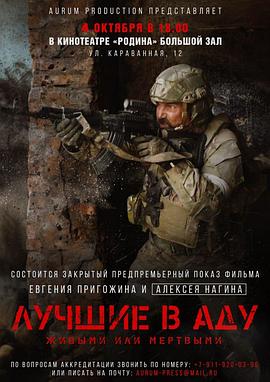In 1961, Stanislaw Rozewicz created the novella film "Birth Certificate" in cooperation with his brother, Taduesz Rozewicz as screenwriter. Such brother tandems are rare in the history of film but aside from family ties, Stanislaw (born in 1924) and Taduesz (born in 1921) were mutually bound by their love for the cinema. They were born and grew up in Radomsk, a small town which had "its madmen and its saints" and most importanly, the "Kinema" cinema, as Stanislaw recalls: for him cinema is "heaven, the whole world, enchantment". Tadeusz says he considers cinema both a charming market stall and a mysterious temple. "All this savage land has always attracted and fascinated me," he says. "I am devoured by cinema and I devour cinema; I'm a cinema eater." But Taduesz Rozewicz, an eminent writer, admits this unique form of cooperation was a problem to him: "It is the presence of the other person not only in the process of writing, but at its very core, which is inserperable for me from absolute solitude." Some scenes the brothers wrote together; others were created by the writer himself, following discussions with the director. But from the perspective of time, it is "Birth Certificate", rather than "Echo" or "The Wicked Gate", that Taduesz describes as his most intimate film. This is understandable. The tradgey from September 1939 in Poland was for the Rozewicz brothers their personal "birth certificate". When working on the film, the director said "This time it is all about shaking off, getting rid of the psychological burden which the war was for all of us. ... Cooperation with my brother was in this case easier, as we share many war memories. We wanted to show to adult viewers a picture of war as seen by a child. ... In reality, it is the adults who created the real world of massacres. Children beheld the horrors coming back to life, exhumed from underneath the ground, overwhelming the earth." The principle of composition of "Birth Certificate" is not obvious. When watching a novella film, we tend to think in terms of traditional theatre. We expect that a miniature story will finish with a sharp point; the three film novellas in Rozewicz's work lack this feature. We do not know what will be happen to the boy making his alone through the forest towards the end of "On the Road". We do not know whether in "Letter from the Camp", the help offered by the small heroes to a Soviet prisoner will rescue him from the unknown fate of his compatriots. The fate of the Jewish girl from "Drop of Blood" is also unclear. Will she keep her new impersonation as "Marysia Malinowska"? Or will the Nazis make her into a representative of the "Nordic race"? Those questions were asked by the director for a reason. He preceived war as chaos and perdition, and not as linear history that could be reflected in a plot. Although "Birth Certificate" is saturated with moral content, it does not aim to be a morality play. But with the immense pressure of reality, no varient of fate should be excluded. This approached can be compared wth Krzysztof Kieslowski's "Blind Chance" 25 years later, which pictured dramatic choices of a different era. The film novella "On the Road" has a very sparing plot, but it drew special attention of the reviewers. The ominating overtone of the war films created by the Polish Film School at that time should be kept in mind. Mainly owing to Wajda, those films dealt with romantic heritage. They were permeated with pathos, bitterness, and irony. Rozewicz is an extraordinary artist. When narrating a story about a boy lost in a war zone, carrying some documents from the regiment office as if they were a treasure, the narrator in "On the Road" discovers rough prose where one should find poetry. And suddenly, the irrational touches this rather tame world. The boy, who until that moment resembled a Polish version of the Good Soldier Schweik, sets off, like Don Quixote, for his first and last battle. A critic described it as "an absurd gesture and someone else could surely use it to criticise the Polish style of dying. ... But the Rozewicz brothers do no accuse: they only compose an elegy for the picturesque peasant-soldier, probably the most important veteran of the Polish war of 1939-1945." "Birth Certificate" is not a lofty statement about national imponderabilia. The film reveals a plebeian perspective which Aleksander Jackieqicz once contrasted with those "lyrical lamentations" inherent in the Kordian tradition. However, a historical overview of Rozewicz's work shows that the distinctive style does not signify a fundamental difference in illustrating the Polish September. Just as the memorable scene from Wajda's "Lotna" was in fact an expression of desperation and distress, the same emotions permeate the final scene of "Birth Certificate". These are not ideological concepts, though once described as such and fervently debated, but rather psychological creations. In this specific case, observes Witold Zalewski, it is not about manifesting knightly pride, but about a gesture of a simple man who does not agree to be enslaved. The novella "Drop of Blood" is, with Aleksander Ford's "Border Street", one of the first narrations of the fate of the Polish Jews during the Nazi occupation. The story about a girl literally looking for her place on earth has a dramatic dimension. Especially in the age of today's journalistic disputes, often manipulative, lacking in empathy and imbued with bad will, Rozewicz's story from the past shocks with its authenticity. The small herione of the story is the only one who survives a German raid on her family home. Physical survial does not, however, mean a return to normality. Her frightened departure from the rubbish dump that was her hideout lead her to a ruined apartment. Her walk around it is painful because still fresh signs of life are mixed with evidence of annihilation. Help is needed, but Mirka does not know anyone in the outside world. Her subsequent attempts express the state of the fugitive's spirits - from hope and faith, moving to doubt, a sense of oppression, and thickening fear, and finally to despair. At the same time, the Jewish girl's search for refuge resembles the state of Polish society. The appearance of Mirka results in confusion, and later, trouble. This was already signalled by Rozewicz in an exceptional scene from "Letter from the Camp" in which the boy's neighbour, seeing a fugitive Russian soldier, retreats immediately, admitting that "Now, people worry only about themselves." Such embarassing excuses mask fear. During the occupation, no one feels safe. Neither social status not the aegis of a charity organisation protects against repression. We see the potential guardians of Mirka passing her back and forth among themselves. These are friendly hands but they cannot offer strong support. The story takes place on that thin line between solidarity and heroism. Solidarity arises spontaneously, but only some are capable of heroism. Help for the girl does not always result from compassion; sometimes it is based on past relations and personal ties (a neighbour of the doctor takes in the fugitive for a few days because of past friendship). Rozewicz portrays all of this in a subtle way; even the smallest gesture has significance. Take, for example, the conversation with a stranger on the train: short, as if jotted down on the margin, but so full of tension. And earlier, a peculiar examination of Polishness: the "Holy Father" prayer forced on Mirka by the village boys to check that she is not a Jew. Would not rising to the challenge mean a death sentance? Viewed after many years, "Birth Certificate" discloses yet another quality that is not present in the works of the Polish School, but is prominent in later B-class war films. This is the picture of everyday life during the war and occupation outlined in the three novellas. It harmonises with the logic of speaking about "life after life". Small heroes of Rozewicz suddenly enter the reality of war, with no experience or scale with which to compare it. For them, the present is a natural extension of and at the same time a complete negation of the past. Consider the sleey small-town marketplace, through which armoured columns will shortly pass. Or meet the German motorcyclists, who look like aliens from outer space - a picture taken from an autopsy because this is how Stanislaw and Taduesz perceived the first Germans they ever met. Note the blurred silhouettes of people against a white wall who are being shot - at first they are shocking, but soon they will probably become a part of the grim landscape. In the city centre stands a prisoner camp on a sodden bog ("People perish likes flies; the bodies are transported during the night"); in the street the childern are running after a coal wagon to collect some precious pieces of fuel. There's a bustle around some food (a boy reproaches his younger brother's actions by singing: "The warrant officer's son is begging in front of the church? I'm going to tell mother!"); and the kitchen, which one evening becomes the proscenium of a real drama. And there are the symbols: a bar of chocolate forced upon a boy by a Wehrmacht soldier ("On the Road"); a pair of shoes belonging to Zbyszek's father which the boy spontaneously gives to a Russian fugitive; a priceless slice of bread, ground under the heel of a policeman in the guter ("Letters from the Camp"). As the director put it: "In every film, I communicate my own vision of the world and of the people. Only then the style follows, the defined way of experiencing things." In Birth Certificate, he adds, his approach was driven by the subject: "I attempted to create not only the texture of the document but also to add some poetic element. I know it is risky but as for the merger of documentation and poety, often hidden very deep, if only it manages to make its way onto the screen, it results in what can referred to as 'art'." After 1945, there were numerous films created in Europe that dealt with war and children, including "Somewhere in Europe" ("Valahol Europaban", 1947 by Geza Radvanyi), "Shoeshine" ("Sciescia", 1946 by Vittorio de Sica), and "Childhood of Ivan" ("Iwanowo dietstwo" by Andriej Tarkowski). Yet there were fewer than one would expect. Pursuing a subject so imbued with sentimentalism requires stylistic disipline and a special ability to manage child actors. The author of "Birth Certificate" mastered both - and it was not by chance. Stanislaw Rozewicz was always the beneficent spirit of the film milieu; he could unite people around a common goal. He emanated peace and sensitivity, which flowed to his co-workers and pupils. A film, being a group work, necessitates some form of empathy - tuning in with others. In a biographical documentary about Stanislaw Rozewicz entitled "Walking, Meeting" (1999 by Antoni Krauze), there is a beautiful scene when the director, after a few decades, meets Beata Barszczewska, who plays Mireczka in the novella "Drops of Blood". The woman falls into the arms of the elderly man. They are both moved. He wonders how many years have passed. She answers: "A few years. Not too many." And Rozewicz, with his characteristic smile says: "It is true. We spent this entire time together."
关联推荐
猜你喜欢
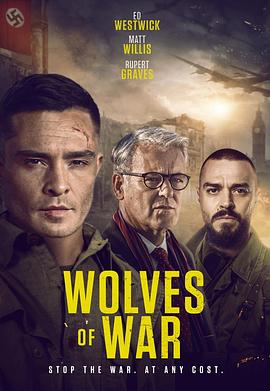 HD中字版爱德·维斯特维克 马特·威利斯 鲁珀特·格雷夫斯 爱德·维斯特维克(《绯闻女孩》)、马特·威利斯([盟军])、鲁珀特·格雷夫斯将主演二战题材新片[战地之狼](Wolves Of War,暂译)。贾尔斯·阿尔德森([亚瑟与梅林:圣杯骑士])执导。该
HD中字版爱德·维斯特维克 马特·威利斯 鲁珀特·格雷夫斯 爱德·维斯特维克(《绯闻女孩》)、马特·威利斯([盟军])、鲁珀特·格雷夫斯将主演二战题材新片[战地之狼](Wolves Of War,暂译)。贾尔斯·阿尔德森([亚瑟与梅林:圣杯骑士])执导。该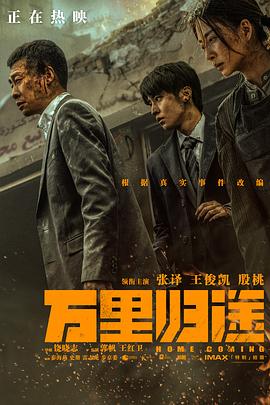 HD国语张译 王俊凯 殷桃 成泰燊 张子贤 陈昊宇 王迅 万茜 李雪健 李晨 王智 吴京 温韬 吴恩璇 国义骞 谢承颖 李路琦 赵梓冲 王照清 朱超艺 闫昌 李凯 谢欣华 侯晓童 穆丽燕 奥梅尔·尤祖亚克 埃兰·艾哈迈德·洛特夫·拉吉·阿尔加赫菲 小伊万·马弗里克 尤金·芬克尔 埃米尔·扎格鲁尔 艾哈迈德·穆罕默德·贾比尔·阿尔卡索姆 电影根据真实事件改编。 努米亚共和国爆发战乱,前驻地外交官宗大伟(张译 饰)与外交部新人成朗(王俊凯 饰)受命前往协助撤侨。任务顺利结束,却得知还有一批被困同胞,正在白婳(殷桃 饰)的带领下,前
HD国语张译 王俊凯 殷桃 成泰燊 张子贤 陈昊宇 王迅 万茜 李雪健 李晨 王智 吴京 温韬 吴恩璇 国义骞 谢承颖 李路琦 赵梓冲 王照清 朱超艺 闫昌 李凯 谢欣华 侯晓童 穆丽燕 奥梅尔·尤祖亚克 埃兰·艾哈迈德·洛特夫·拉吉·阿尔加赫菲 小伊万·马弗里克 尤金·芬克尔 埃米尔·扎格鲁尔 艾哈迈德·穆罕默德·贾比尔·阿尔卡索姆 电影根据真实事件改编。 努米亚共和国爆发战乱,前驻地外交官宗大伟(张译 饰)与外交部新人成朗(王俊凯 饰)受命前往协助撤侨。任务顺利结束,却得知还有一批被困同胞,正在白婳(殷桃 饰)的带领下,前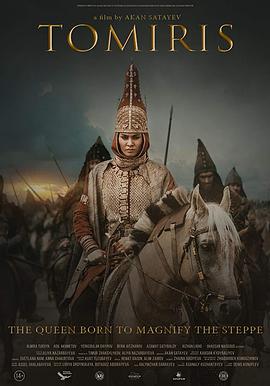 9.0HD中字版阿尔米拉·图森 Adil Akhmetov 埃克布兰·戴洛夫 别里克·艾特占诺夫 Satybaldy Azamat Aizhan Lighg 加桑·马苏德 影片还原了斯基泰马萨格泰草原女王托米利斯击杀波斯阿契美尼德王朝国王居鲁士二世的历史传奇。托米莉斯命中注定将成为一名出色的斗士,然而成为传奇之前她不得不牺牲最亲近的人。
9.0HD中字版阿尔米拉·图森 Adil Akhmetov 埃克布兰·戴洛夫 别里克·艾特占诺夫 Satybaldy Azamat Aizhan Lighg 加桑·马苏德 影片还原了斯基泰马萨格泰草原女王托米利斯击杀波斯阿契美尼德王朝国王居鲁士二世的历史传奇。托米莉斯命中注定将成为一名出色的斗士,然而成为传奇之前她不得不牺牲最亲近的人。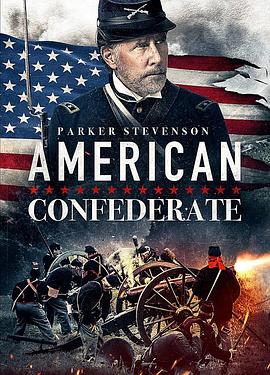 10.0HD中字版威廉·亚当斯 杰齐贝尔·阿纳特 金伯利·坎贝尔 "American Confederate" follows a group of Confederate cavalry, and a group of Union (Fed
10.0HD中字版威廉·亚当斯 杰齐贝尔·阿纳特 金伯利·坎贝尔 "American Confederate" follows a group of Confederate cavalry, and a group of Union (Fed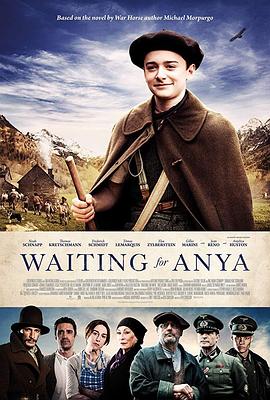 HD中字版安杰丽卡·休斯顿 让·雷诺 尼古拉斯·罗尔 托马斯·克莱舒曼 诺亚·施纳普 珊迪·弗罗斯特 吉勒·马里尼 约瑟芬·德·拉·波美 托马斯·勒马尔奎斯 费雷德里克·施密特 艾尔莎·泽贝斯坦 乌尔斯·瑞恩 设定在二战时期,围绕一个年轻牧童展开故事,他涉及到走私犹太儿童穿越边境前往西班牙的交易中。
HD中字版安杰丽卡·休斯顿 让·雷诺 尼古拉斯·罗尔 托马斯·克莱舒曼 诺亚·施纳普 珊迪·弗罗斯特 吉勒·马里尼 约瑟芬·德·拉·波美 托马斯·勒马尔奎斯 费雷德里克·施密特 艾尔莎·泽贝斯坦 乌尔斯·瑞恩 设定在二战时期,围绕一个年轻牧童展开故事,他涉及到走私犹太儿童穿越边境前往西班牙的交易中。 HD中字华金·菲尼克斯 凡妮莎·柯比 塔哈·拉希姆 鲁伯特·艾弗雷特 马克·博纳尔 保罗·瑞斯 本·迈尔斯 瑞安娜·杜斯 露德温·塞尼耶 爱德华·菲利波纳特 迈尔斯·贾普 斯科特·汉迪 优素福·凯尔科尔 约翰·霍林沃思 阿布巴卡尔·萨利姆 汤姆·阿什利 杰尼斯·纽沃纳 朱利安·林希德-图特 约翰·霍奇金森 艾琳·安斯沃思 影片讲述了法国皇帝拿破仑(华金·菲尼克斯 Joaquin Phoenix 饰)从士兵到帝王波澜壮阔的一生,展现了拿破仑非凡的军事才能和战略远见。并通过他与其唯一挚爱约瑟芬(凡妮莎·柯比 Vanes
HD中字华金·菲尼克斯 凡妮莎·柯比 塔哈·拉希姆 鲁伯特·艾弗雷特 马克·博纳尔 保罗·瑞斯 本·迈尔斯 瑞安娜·杜斯 露德温·塞尼耶 爱德华·菲利波纳特 迈尔斯·贾普 斯科特·汉迪 优素福·凯尔科尔 约翰·霍林沃思 阿布巴卡尔·萨利姆 汤姆·阿什利 杰尼斯·纽沃纳 朱利安·林希德-图特 约翰·霍奇金森 艾琳·安斯沃思 影片讲述了法国皇帝拿破仑(华金·菲尼克斯 Joaquin Phoenix 饰)从士兵到帝王波澜壮阔的一生,展现了拿破仑非凡的军事才能和战略远见。并通过他与其唯一挚爱约瑟芬(凡妮莎·柯比 Vanes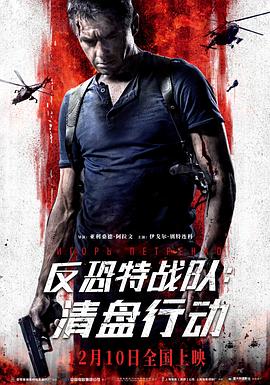 HD中字伊戈尔·别特连科 Ivan Shakhnazarov Ayub Tsingiev 阿列克谢·沃特考夫 北高加索地区,恐怖分子头领巴兹加耶夫命令他的军队去筹集资金,以购买可以替代的对空攻击系统;莫斯科,拉维尔将军联合叶戈尔少校设立了一个特别行动组,目的是追踪巴兹加耶夫的藏匿地点并铲除他。就在拉维尔一
HD中字伊戈尔·别特连科 Ivan Shakhnazarov Ayub Tsingiev 阿列克谢·沃特考夫 北高加索地区,恐怖分子头领巴兹加耶夫命令他的军队去筹集资金,以购买可以替代的对空攻击系统;莫斯科,拉维尔将军联合叶戈尔少校设立了一个特别行动组,目的是追踪巴兹加耶夫的藏匿地点并铲除他。就在拉维尔一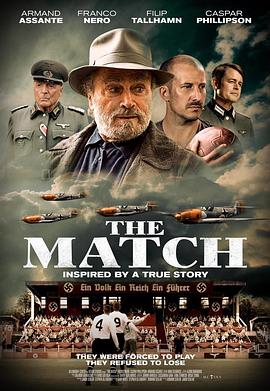 10.0HD中字版阿曼德·阿山特 弗兰科·内罗 罗伯特‧马瑟 Inspired by true events from the spring of 1944 when the Nazis organized a football match between
10.0HD中字版阿曼德·阿山特 弗兰科·内罗 罗伯特‧马瑟 Inspired by true events from the spring of 1944 when the Nazis organized a football match between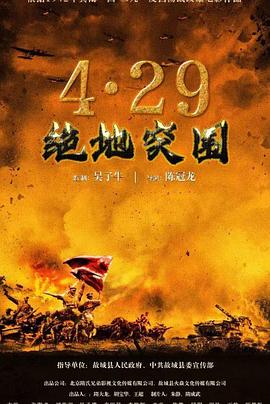 7.0HD国语许明虎 刘芯羽 张光北 来喜 杨子骅 高田昊 李佳洺 陈凯 冒瑁 田杨 李晓颖 周楷宸 电影取材于真实历史,根据1942年冀南“四·二九”反扫荡改编,将再现冀南区人民不畏牺牲、绝地反击、英勇战斗的精神。
7.0HD国语许明虎 刘芯羽 张光北 来喜 杨子骅 高田昊 李佳洺 陈凯 冒瑁 田杨 李晓颖 周楷宸 电影取材于真实历史,根据1942年冀南“四·二九”反扫荡改编,将再现冀南区人民不畏牺牲、绝地反击、英勇战斗的精神。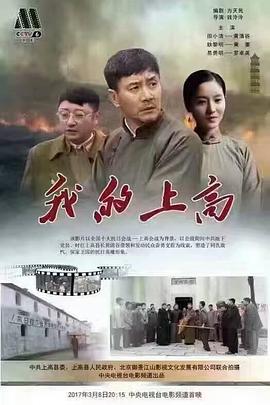 HD国语版田小洁 耿黎明 易勇名 朴俊铭 张宇飞 电影《我的上高》以上高会战为背景,再现了上高会战时期,上高普通民众支援抗战、痛击日本侵略者的一段感人故事。闻名中外的“上高会战”又称“上高战役”或“锦江会战”,被称为是上世纪抗战以来最精彩的一战:
HD国语版田小洁 耿黎明 易勇名 朴俊铭 张宇飞 电影《我的上高》以上高会战为背景,再现了上高会战时期,上高普通民众支援抗战、痛击日本侵略者的一段感人故事。闻名中外的“上高会战”又称“上高战役”或“锦江会战”,被称为是上世纪抗战以来最精彩的一战: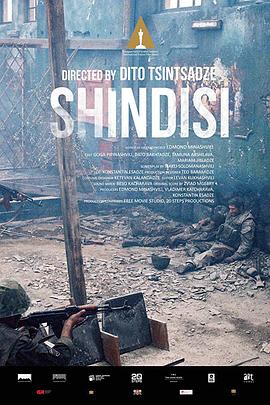 HD中字版达托·巴赫塔泽 乔奇·科兹拉娃 伊拉克利·萨姆西亚 Giorgi Tsaava Goga Pipinashvili Tamar Abshilava Roman Gventsadze Gio Gabunia Buba Chogoshvili Mariam Jibladze Giorgi Grdzelidze Dimitri Lupol Zaza Chincharauli Nikoloz Nanitashvili Zura Gelashvili 本片由迪托·钦察泽([呼吸之间])执导,故事讲述2008年南奥塞梯战争期间,在格鲁吉亚的一个名为辛迪斯的小村庄中,17名士兵被杀。
HD中字版达托·巴赫塔泽 乔奇·科兹拉娃 伊拉克利·萨姆西亚 Giorgi Tsaava Goga Pipinashvili Tamar Abshilava Roman Gventsadze Gio Gabunia Buba Chogoshvili Mariam Jibladze Giorgi Grdzelidze Dimitri Lupol Zaza Chincharauli Nikoloz Nanitashvili Zura Gelashvili 本片由迪托·钦察泽([呼吸之间])执导,故事讲述2008年南奥塞梯战争期间,在格鲁吉亚的一个名为辛迪斯的小村庄中,17名士兵被杀。

